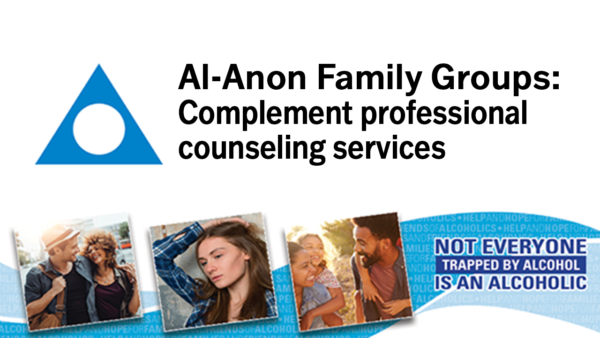
Al‑Anon Family Groups provide support for people affected by or concerned about someone else’s alcohol misuse or addiction. Oftentimes when newcomers find the program they are focused on their loved one’s problems and/or behavior, but they come to understand that they too have been profoundly affected.
One such struggle many members share is problems with their mental health, including PTSD, or post‑traumatic stress disorder. PTSD develops after a stressful, frightening, or distressing event, or after a prolonged traumatic experience. Although Al‑Anon Family Groups does not provide mental health treatment, in the 2021 Al‑Anon Membership Survey, members reported improvements to their mental health, including PTSD. Ninety‑one percent reported improved mental health after attending Al‑Anon meetings, and 80 percent rated their mental health significantly improved.
Al‑Anon is meant to complement professional treatment, not replace it. If you suspect a client or patient has been affected by someone else’s drinking, consider adding Al‑Anon meetings to their treatment program.
I have bipolar depression and will have 26 years in Al-Anon but have time in other programs as well and being a family member of alcoholics isn’t easy but having served however possible in two different states has been refreshing for me and my program. I’ll always be in peace with my program no matter how many people I work with.